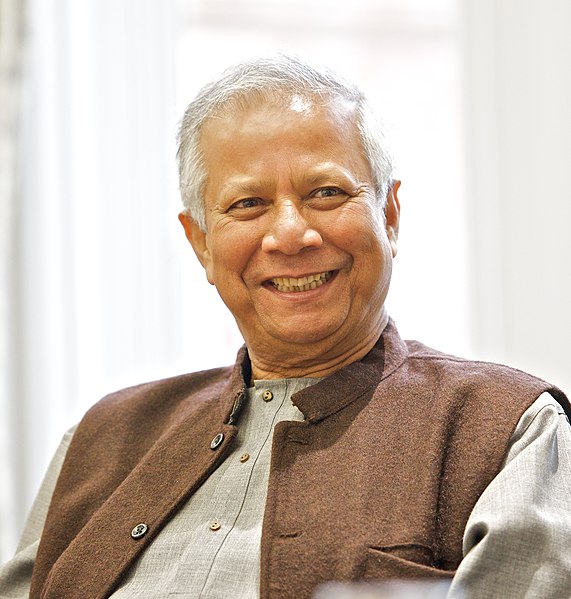When Muhammad Yunus, a Nobel Prize-winning economist, was appointed interim Chief Advisor of Bangladesh, there were hopes that his stature would have calming effect on the frayed nerves of political actors in the country. Sheikh Hasina, the prime minister whose reign was characterized by corruption and favoritism, was forced to quit the country, thus the goal of agitators was achieved. The nation would now limp back to normalcy. Alas, that was not to be, for Yunus has proved to be a pliable tool in the hands of Islamists who spearheaded the movement against Hasina.
Yunus has clearly failed to meet governance expectations as an interim leader. His leadership indeed has exacerbated challenges for minority groups, particularly Hindus, and has enabled the further empowerment of Islamist forces. He has aligned with Islamist groups and diminishes the security of minorities.
Since, August 5, when Hasina left Dhaka, there have been over 2,000 incidents of attacks on Hindus. The Bangladesh Hindu Buddhist Christian Unity Council and international rights groups have expressed concern about the government’s inability to protect minorities.
An AP report said, “United Nations human rights officials and other rights groups have expressed concern over human rights in the country under Yunus. Hindus and other minority communities say the interim government hasn’t adequately protected them and that hard-line Islamists are becoming increasingly influential since Hasina’s ouster.”
Prime Minister Narendra Modi has also expressed concern over the attacks.
But Yunus claims that the reports about the violence against Hindus is “exaggerated propaganda” aimed at destabilizing the nation.
While United States President Joe Biden has been downplaying human rights issues in Bangladesh, his successor, Donald Trump, has been forthright in denouncing “barbaric” violence against Hindus, Christians, and other minorities. Hopefully, pressure from Washington after Trump assumes office will improve the situation in Bangladesh.
Yunus will find Trump 2.0 tough. The reason is simple: the Nobel laureate has been mollycoddled so much by the West that he and his government will not find a tough White House difficult to handle. Yunus and his cronies seem to have become insolent; they don’t give two hoots to the criticism about the mistreatment of religious minorities. They are bothered only about punishing Hasina.
Yunus has regularly downplayed concerns over muted celebrations during Durga Puja, citing the number of celebrations as evidence of normalcy. His response is in tune with his sympathies for jihadists and Islamists. For instance, he lifted the ban on Jamaat-e-Islami (JI), the treasonous organization which had colluded with the Pakistani Army during Bangladesh’s Liberation War. JI was also actively involved in the genocide of the people of Bangladesh, especially Hindus.
Under Yunus’ wathc, the vandalization of Sheikh Mujib’s statues and murals, along with the removal of his portrait, is taking place. It is part of a broader Islamist agenda to undermine secularism, which is Sheikh Mujib’s legacy.
Pro-Islamist events, such as commemorating Jinnah, further signify a shift in national ideology.
Yunus is facilitating the resurgence of Islamist influence also by strategic moves like releasing convicted terrorists and supporting hardline Islamist factions for political gains.
His persistent demand for Sheikh Hasina’s extradition from India also underlines his pro-Islamist sympathies.
To be sure, as prime minister, Hasina was not the paragon of statesmanship. Her reign was pockmarked with allegations of corruption and authoritarianism. But now it looks like her biggest sin was the protection she provided to Hindus, though she was not very successful in it. Nothing galls her detractors more than this (from their perspective) unforgiveable sin.
Days after her ouster, a Hindu victim of Islamist violence told BBC that “Hindu minorities in Bangladesh… are largely viewed as supporters of Sheikh Hasina’s secular Awami League party and are often attacked by [her] rivals in a country where Islam is the state religion.”
In a nutshell, Yunus should not be seen as an ‘accidental’ head of government who, because of his lack of political experience, is being manipulated by wily Islamists. He is hand in glove with them, if not himself one of them.
